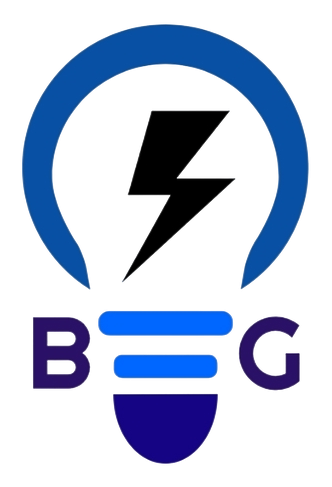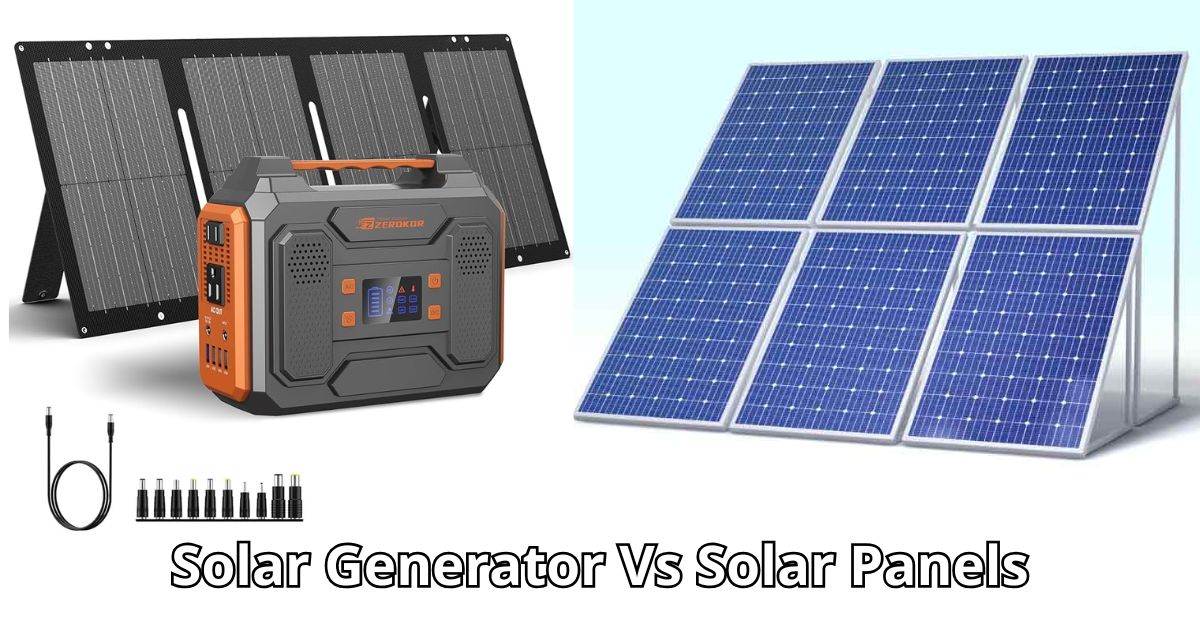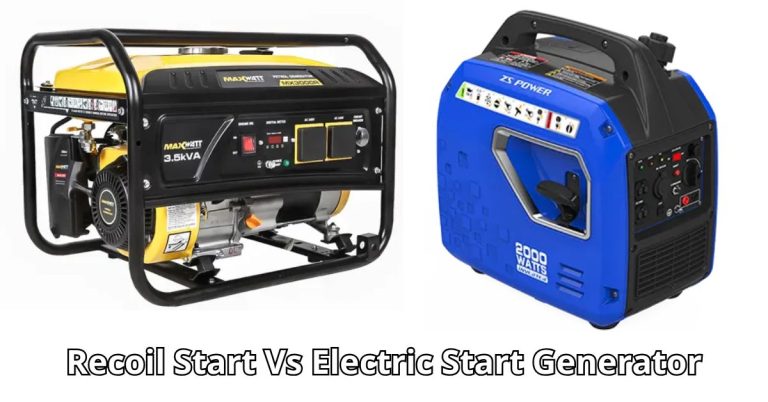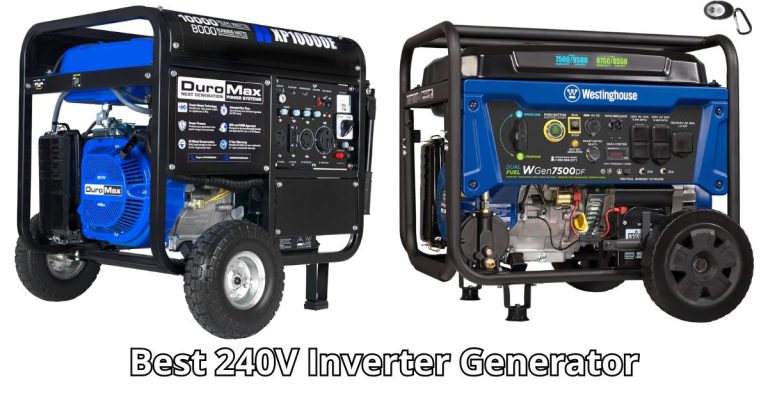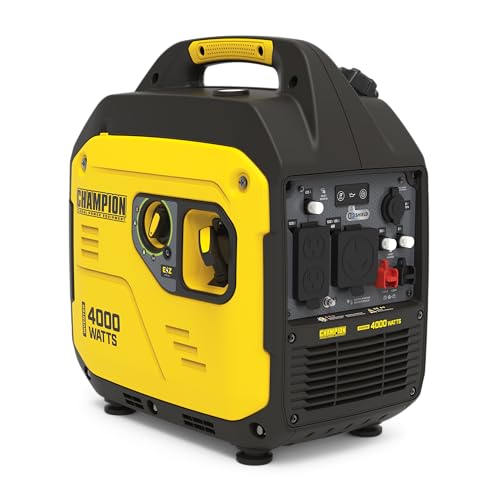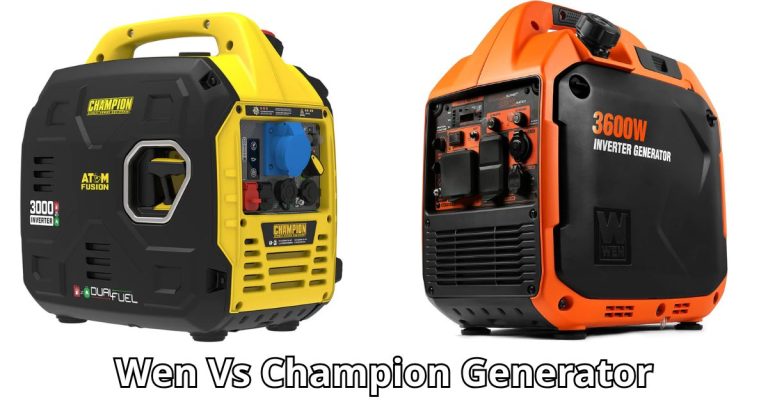Solar Generator Vs Solar Panels: Which One is Right for You?
Solar generators and solar panels are both popular renewable energy solutions. Each offers distinct benefits and serves different needs.
In today’s world, finding clean and sustainable energy sources is essential. Solar generators and solar panels provide eco-friendly ways to harness the sun’s power. But which one is right for you? Comparing these options helps you make an informed decision.
Solar generators are portable and perfect for emergencies. Solar panels, on the other hand, are great for long-term energy savings at home. Understanding the differences between these technologies can guide you in choosing the best solution for your energy needs. This comparison will explore key aspects of solar generators and solar panels, helping you decide which suits your lifestyle and energy goals.
Introduction To Solar Energy
Solar energy is a clean and renewable source of power. It’s derived from the sun’s rays. Harnessing this energy can reduce electricity costs. It also lowers your carbon footprint.
Basics Of Solar Power
Solar power relies on photovoltaic cells. These cells convert sunlight into electricity. Solar panels are made of many such cells. When sunlight hits the panels, they produce direct current (DC) electricity. An inverter then converts this DC into alternating current (AC). This AC electricity powers homes and businesses.
Solar generators are another way to use solar power. They combine solar panels, batteries, and inverters. Solar generators store energy in batteries. This stored power can be used during cloudy days or at night. They are portable and can provide power during emergencies.
Importance Of Sustainable Energy
Sustainable energy reduces our reliance on fossil fuels. Fossil fuels contribute to pollution and climate change. Solar energy produces no harmful emissions. It helps protect our environment.
Using solar power also promotes energy independence. It can reduce energy bills and provide reliable power. Solar energy systems have low maintenance costs. They are a wise investment for the future.
What Is A Solar Generator?
A solar generator is a device that converts sunlight into electricity. It stores this energy in a battery for later use. This system provides portable and renewable power. Many people use solar generators during power outages or outdoor activities.
Components Of A Solar Generator
Solar generators have several key components. These include solar panels, a battery, an inverter, and a charge controller. Each part plays a vital role in the system.
Solar panels capture sunlight and convert it into electricity. The battery stores this electricity for use later. The inverter changes the stored energy into a form that can power devices. The charge controller manages the flow of electricity to prevent overcharging.
How Solar Generators Work
Solar generators work through a simple process. First, solar panels collect sunlight. They convert this sunlight into direct current (DC) electricity. This DC electricity flows into the battery for storage.
When needed, the inverter changes the stored DC electricity into alternating current (AC). Most household devices run on AC electricity. The charge controller ensures the battery does not overcharge. This process provides a reliable and renewable power source.
What Are Solar Panels?
Solar panels are devices designed to absorb the sun’s rays and convert them into electricity or heat. They are a key component in the realm of renewable energy. Solar panels are often installed on rooftops or open fields to capture sunlight. This energy can then power homes, businesses, or even vehicles. Understanding how solar panels work and their types is crucial for anyone considering solar energy solutions.
Types Of Solar Panels
There are several types of solar panels available in the market. Each has its unique features and benefits.
- Monocrystalline Solar Panels: Made from single-crystal silicon. These panels are more efficient and last longer.
- Polycrystalline Solar Panels: Made from multiple silicon crystals. They are less expensive but slightly less efficient.
- Thin-Film Solar Panels: Made from a variety of materials like cadmium telluride or amorphous silicon. These panels are flexible and lightweight.
Choosing the right type depends on your budget, space, and energy needs. Each type has its advantages and trade-offs.
How Solar Panels Function
Solar panels work by converting sunlight into electricity. This process involves several steps:
- Photovoltaic Cells: Solar panels contain photovoltaic (PV) cells. These cells are made of semiconductor materials.
- Sunlight Absorption: When sunlight hits these cells, it knocks electrons loose.
- Electric Current Creation: The loose electrons flow through the cell, creating an electric current.
- Inverter Usage: This current is direct current (DC). An inverter converts it to alternating current (AC), which powers homes and businesses.
This simple yet effective process is what makes solar panels a reliable source of renewable energy.
Investing in solar panels can reduce electricity bills and help the environment. With various types available, there is a solar panel for every need and budget.
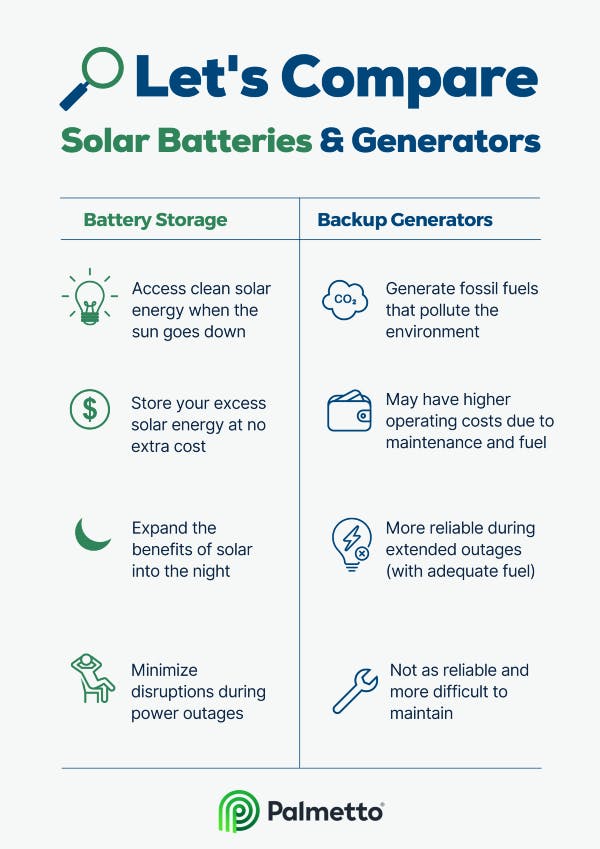
Credit: palmetto.com
Comparing Solar Generators And Solar Panels
Comparing solar generators and solar panels can help you make an informed choice. Both harness the sun’s power, but they serve different needs. Understanding their differences is key to deciding which suits your situation better. Let’s explore their efficiency, output, installation, and maintenance.
Efficiency And Output
Solar panels generally produce more energy than solar generators. This is due to their larger size and capacity. Solar panels can power an entire home or business. Solar generators are smaller and portable. They are ideal for trips and emergencies. Solar panels have a higher conversion rate. They turn more sunlight into electricity.
Installation And Maintenance
Installing solar panels can be complex. It often requires professional help. Panels need to be mounted on roofs or open spaces. Solar generators are easy to set up. Plug them in, and they’re ready to use. Maintenance for solar panels includes cleaning and occasional checks. Solar generators need less upkeep. Just ensure the battery is charged and in good condition.
Cost Analysis
Deciding between a solar generator and solar panels can be tough. Both have unique cost structures. This section breaks down the cost analysis into two main parts: initial investment and long-term savings.
Initial Investment
Solar generators usually require a lower initial investment. They are portable and include built-in batteries. These devices range in price from $300 to $2,000. The cost depends on capacity and features.
Solar panels involve a higher upfront cost. You need to buy the panels, inverters, and batteries. Installation costs add up too. A basic setup might start at $5,000. High-end systems can reach up to $30,000.
| Component | Solar Generator | Solar Panels |
|---|---|---|
| Device Cost | $300 – $2,000 | $3,000 – $20,000 |
| Installation | N/A | $2,000 – $10,000 |
| Total Initial Cost | $300 – $2,000 | $5,000 – $30,000 |
Long-term Savings
Solar generators offer limited long-term savings. They are ideal for short-term or emergency use. Their batteries have a limited lifespan. Replacing batteries can add to costs over time.
Solar panels, on the other hand, provide significant long-term savings. Once installed, they reduce or eliminate electricity bills. The savings can accumulate over 20-30 years. Many solar panels come with warranties that last up to 25 years.
- Solar generators – Limited long-term savings due to battery replacements.
- Solar panels – Substantial long-term savings, reducing electricity costs significantly.
In summary, consider your budget and needs. A solar generator is less costly upfront. Solar panels offer greater long-term savings.
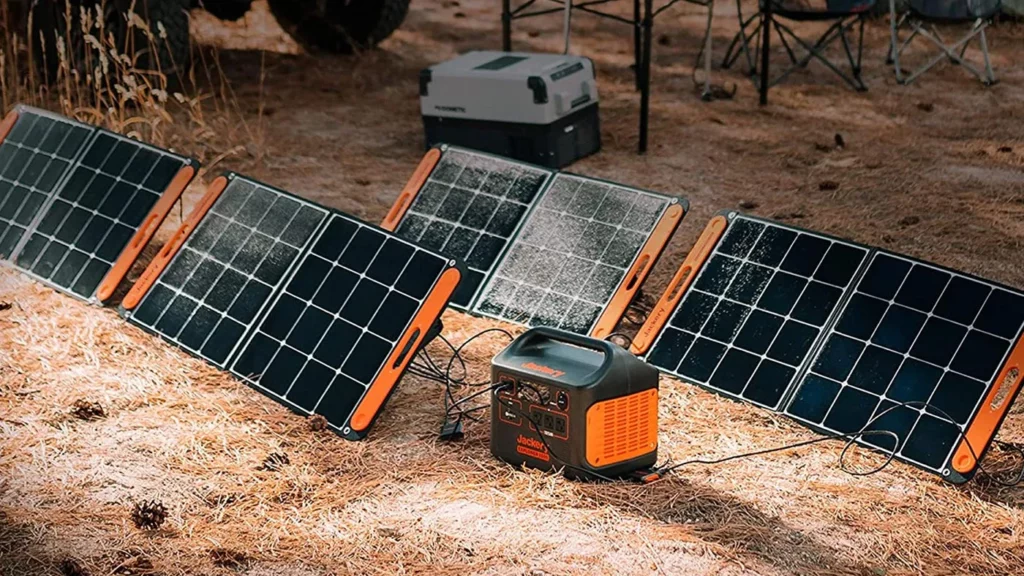
Credit: solairworld.com
Environmental Impact
Environmental impact is a key factor when deciding between solar generators and solar panels. Both options harness renewable energy, but their environmental footprints differ. This section examines their carbon footprint and recycling and waste management.
Carbon Footprint
Solar generators and solar panels both reduce carbon emissions by using sunlight. Solar panels convert sunlight directly into electricity, reducing reliance on fossil fuels. This significantly lowers carbon output over time.
Solar generators combine solar panels with storage batteries. These batteries store energy for later use, minimizing the need for diesel or gas generators. This further decreases carbon emissions, especially in remote areas without grid access.
Recycling And Waste Management
Recycling and waste management are vital for both solar generators and solar panels. Solar panels last 25-30 years and are mostly recyclable. Aluminum frames, glass, and silicon in panels can be reused, reducing waste.
Solar generators also have recyclable components. Batteries, however, require special handling. Lead-acid and lithium-ion batteries need proper disposal to avoid environmental harm. Many companies offer recycling programs for these batteries.
Both options contribute to a greener planet. Choosing the right one depends on your energy needs and environmental goals.
Practical Applications
Both solar generators and solar panels offer unique benefits in different settings. Understanding their practical applications can help users make informed decisions.
Residential Use
For homes, solar panels are often mounted on rooftops. They convert sunlight into electricity for daily use. This reduces reliance on the grid and lowers electricity bills.
Solar generators, on the other hand, are portable. They are ideal for backup power during outages. They can also be used for camping and RVs.
Advantages of Solar Panels:
- Long-term cost savings
- Permanent installation
- Increased home value
Advantages of Solar Generators:
- Portability
- Ease of use
- No installation required
Commercial And Industrial Use
Commercial properties benefit greatly from solar panels. Large installations can power entire buildings. This reduces operational costs and promotes sustainability.
Industries use solar panels for various applications. They can power machinery and equipment. This helps reduce the carbon footprint.
Solar generators are useful in remote industrial sites. They provide a reliable power source where the grid is inaccessible. They are also used for temporary events and construction sites.
Benefits for Commercial and Industrial Use:
| Solar Panels | Solar Generators |
|---|---|
| Cost-effective for large-scale use | Portable and versatile |
| Reduces long-term energy expenses | Requires no permanent installation |
| Enhances brand image through sustainability | Ideal for off-grid locations |
Choosing The Right Option
Deciding between a solar generator and solar panels can be challenging. Each option has its benefits and drawbacks. Understanding your needs helps in making the right choice. This section guides you through assessing your requirements and expert recommendations.
Assessing Your Needs
First, determine your power needs. Solar generators are portable and great for small devices. They are ideal for camping trips or emergency backups. Solar panels are better for long-term, high-power needs. They can power homes or larger systems.
Consider the following factors:
- Portability: Do you need a power source on the go?
- Power Output: How much energy do you require daily?
- Space Availability: Do you have enough space for solar panels?
- Budget: What is your budget for the initial investment?
Answering these questions helps in narrowing down your choices.
Expert Recommendations
Experts suggest evaluating your energy consumption first. Solar generators are perfect for low-power needs. They are easy to use and require minimal setup. For instance, a typical solar generator can power small appliances like laptops, phones, and lights.
Here is a comparison table:
| Feature | Solar Generator | Solar Panels |
|---|---|---|
| Portability | High | Low |
| Power Output | Low | High |
| Setup | Easy | Complex |
| Cost | Moderate | High |
Solar panels are better for permanent installations. They provide higher power output and are more cost-effective in the long run. For example, a solar panel system can power an entire household, reducing electricity bills.
Experts also advise considering future energy needs. Solar panels offer scalability. You can add more panels as your needs grow.
In summary, evaluate your needs carefully. Choose a solar generator for portability and ease of use. Opt for solar panels for higher, long-term power requirements.
Future Of Solar Technology
The future of solar technology is bright and promising. As the world seeks sustainable energy solutions, solar power stands out. Two major players in this field are solar generators and solar panels. Both are evolving rapidly, bringing new possibilities for clean energy.
Innovations In Solar Generators
Solar generators are becoming more efficient and portable. Recent innovations focus on increasing energy storage and reducing size. Here are some key advancements:
- Lithium-ion batteries: These batteries offer higher storage capacity.
- Portable designs: Newer models are lightweight and easy to carry.
- Smart technology: Some generators come with apps for monitoring and control.
These innovations make solar generators ideal for outdoor activities. They are also useful during power outages. With smart technology, users can track energy consumption in real-time.
Advancements In Solar Panels
Solar panels are also seeing significant advancements. These improvements aim to enhance efficiency and durability. Key advancements include:
- Bifacial panels: These panels capture sunlight from both sides.
- Perovskite solar cells: These cells are cheaper and more efficient.
- Flexible solar panels: These panels can be installed on curved surfaces.
Bifacial panels can increase energy output by up to 30%. Perovskite cells are promising due to their low cost. Flexible panels allow for installation in varied locations.
The future of solar technology looks bright with these advancements. Both solar generators and panels are becoming more accessible and efficient.
Frequently Asked Questions
What Is A Solar Generator?
A solar generator is a device that converts solar energy into electrical power. It typically includes solar panels, a battery storage system, and an inverter.
How Do Solar Panels Work?
Solar panels convert sunlight directly into electricity using photovoltaic cells. They capture solar energy and generate direct current (DC) electricity.
Which Is Better, Solar Generator Or Solar Panels?
It depends on your needs. Solar generators are portable and ideal for emergencies. Solar panels are better for consistent power needs and long-term solutions.
Can Solar Generators Power A House?
Solar generators can power small appliances and essential devices. However, they may not be sufficient for running an entire house continuously.
Conclusion
Choosing between a solar generator and solar panels depends on your needs. Solar generators offer portability and convenience. Perfect for camping or emergencies. Solar panels provide a more permanent solution. Ideal for homes and long-term energy savings. Both options are eco-friendly.
They help reduce your carbon footprint. Assess your energy needs and budget. Then, make an informed decision. Harness the power of the sun today. Save money and protect our planet.
